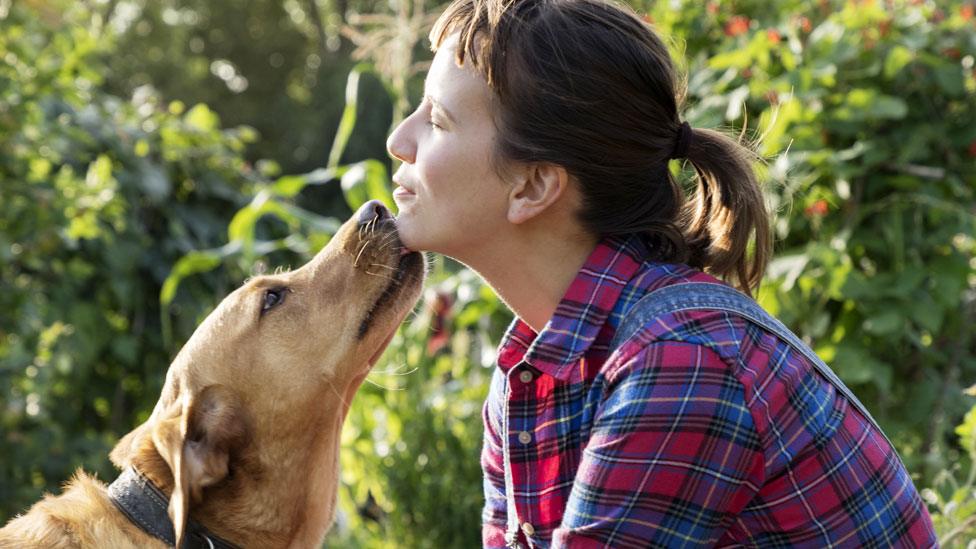Charities struggling amid influx of older dogs
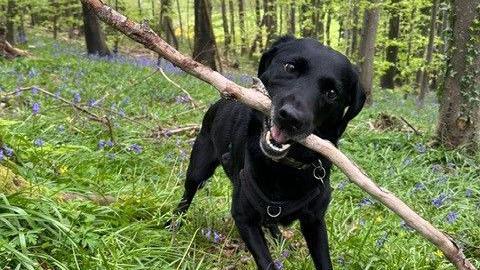
Cindy was adopted in May at eight years old after her former owner could not afford vet bills
- Published
Charities have warned of a "crisis" amid an influx of older dogs being dropped off at animal rescue centres.
Due to their increased medical needs and a rise in the cost of vet bills, the number of people willing to adopt an older pet has been dwindling, a charity spokesperson said.
One charity boss said she was "petrified" about the approaching winter as she feared numbers would "increase massively".
But owners who have adopted older dogs across the south west of England said they were "well worth the money".
"If it's not too much of a cliché, it was love at first sight... I knew from the first time I saw her she was the dog for me," said Ralph Gale.
He adopted Cindy, a black Labrador, in the last few years of her life after her former owner could not afford the vet bills.
Mr Gale, who lives near Watchet, Somerset, picked Cindy up in May and has had to "forego cakes, biscuits and ice cream" to afford her but said she was worth every penny.
The Office for National Statistics estimated the cost of veterinary and other pet services had increased by about 50% since 2015.
Rushton Dog Rescue, in Langport, west Somerset, where Cindy was looked after, said the sharp rise was partly behind an influx of older dogs being dropped off at charities due to unaffordable costs - and there were now more coming in than out.
Its founder Cindi McNeil Regan said it was causing a "never-ending circle" and the charity now sent older dogs to a foster home while covering the vet costs to save space.
'Dogs give you everything'
Mr Gale said Cindy, who is eight years old, looked "quite neglected" when she first arrived at Rushton, adding she was "underweight and losing her fur".
Mr Gale said the overall cost of Cindy was about £150 per month and she had to be fed a high-protein diet.
"With an older dog, you may inherit one or two problems but I thought I'd go for an older dog because I'm a bit of an older dog myself. What she provides is greatly in excess of what she takes out," he added.

Mr Gale says Cindy's overall monthly cost is about £150
In Gloucestershire, 11-year-old Smokey was found as a stray and was cared for by Cheltenham Animal Shelter, where he remained for more than 200 days.
Anne Kanonik, who adopted the Staffordshire bull terrier in April, saw his advert, and despite having lumps on his back and weak back legs, she went for him.
"I don't have to worry about him at all. He's an absolute gorgeous angel, and I wish people would give more to these older dogs," said the grandmother, who lives in Innsworth.
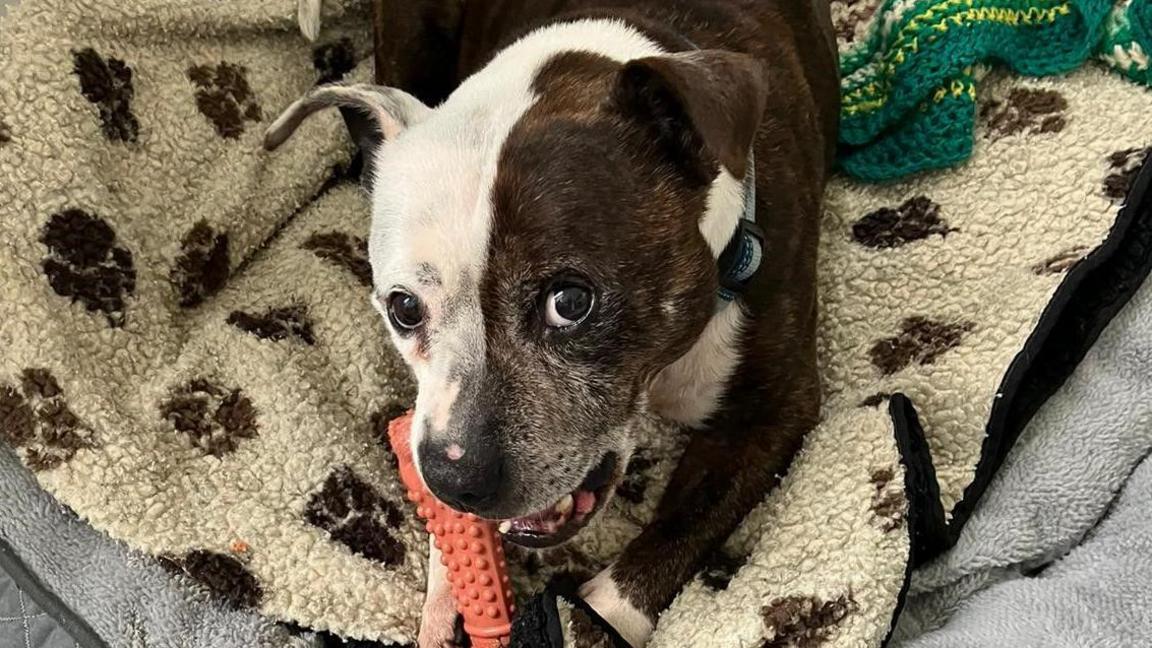
Anne Kanonik said she had "melted" seeing Smokey for the first time
Ms McNeil-Regan said the thought of winter, where people would be burdened more by cost of living issues, was "petrifying", as it would put further pressure on Rushton.
"Fuel prices have increased. Veterinary costs have increased food. Food for the dogs has increased," she said.
"With winter fast-approaching, the influx of animals before and after Christmas will increase massively.
"And we feel responsible for animals that we haven't yet met that are needing help, and it can have a toll on many charity workers up and down the country."
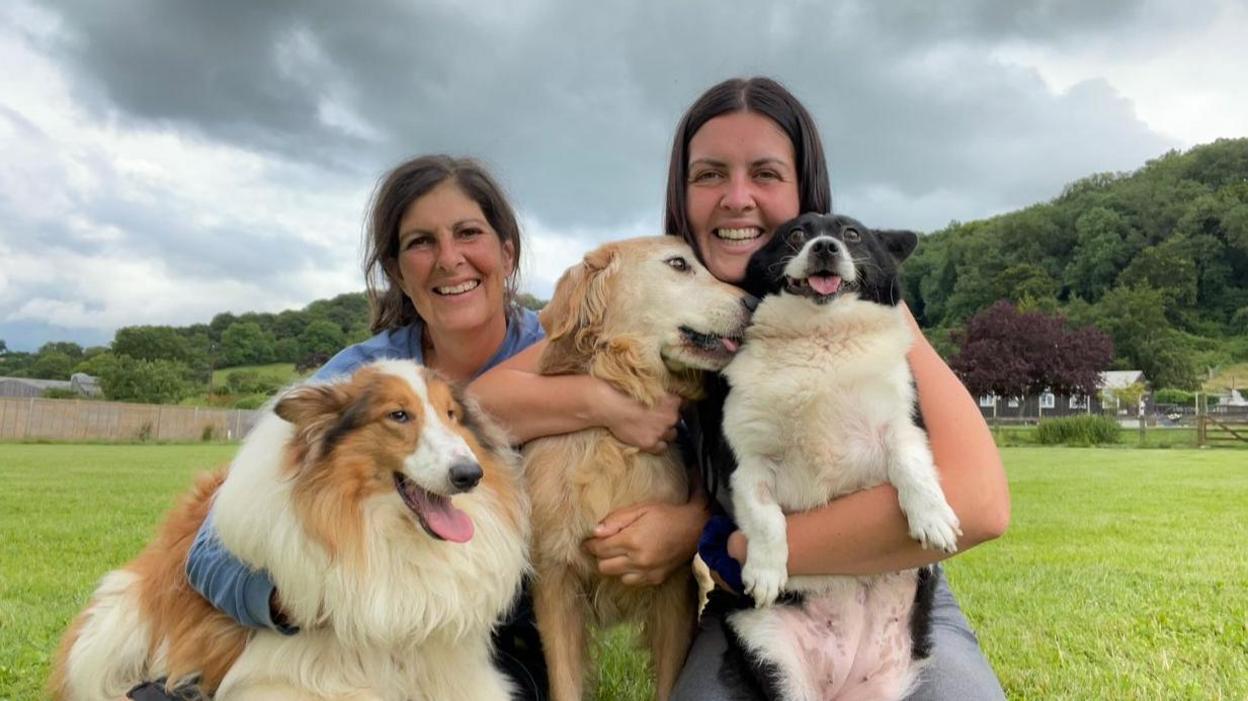
Cindi McNeil Regan (L) and her daughter Zoe McNeil (right)
This is contributing to a "crisis", with a lack of people who want to adopt older dogs because of the ongoing veterinary costs, she added.
Ms McNeil Regan said a boom in pets bought during coronavirus lockdowns were "already coming in" with behavioural issues and "incorrect checks", which was also having an impact.
Sam Wilden, a canine re-homer at Cheltenham Animal Shelter, said their vet bills totalled £75,000 a year.
But he said they had let potential owners know "how much heart" the older dogs had.
"A lot of them, even though they have medical issues, have got so much to give," he said.
"With some medications, we can show them different ways and different prices.
"Even though yes, they've got these medical issues, the actual overall cost doesn't have to be that much."
The shelter offers a hardship fund for cash-strapped owners, which has saved 69 pets from neglect by paying for their medical treatment. However, their annual running costs exceed £1m and are on the rise.
Mr Wilden said looking after older dogs meant keeping them as warm as possible during the winter, which cost the shelter about £52,000.
'Vets aren't profit driven'
Hattie Lawrence, CEO of Langford Vet Practice in North Somerset, said the lockdown puppies, who had reduced exercise, would "inevitably become more likely to suffer from chronic disease, such as osteoarthritis or diabetes or other metabolic diseases".
"Those are chronic conditions that will last for the rest of that animal's life, and require ongoing care.
"That ongoing care not only requires plenty of vets, vet nurses, and other professionals to look after those animals, but also that's going to deliver increased cost for their owners.
"We've ended up with vet practices that are very, very busy trying to manage a hugely increased number of animals in their care," she said.
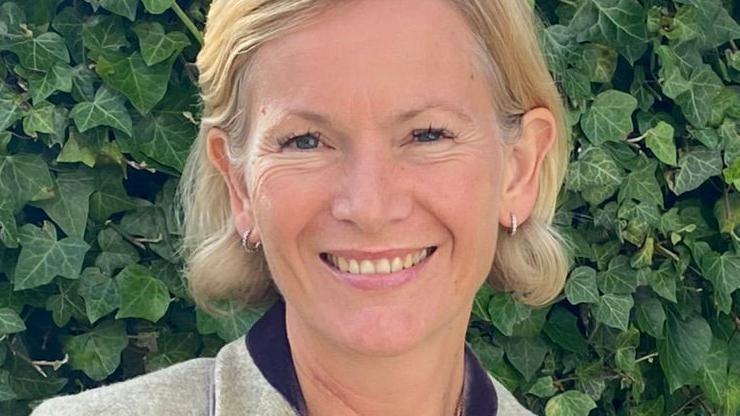
Ms Lawrence's vet practices were not "driven by profit"
She said veterinary care costs had risen in a continuous process rather than any specific reason over the last decade.
People who worked in practices were "sadly demonised" for the rise in costs but earned "significantly less" than other professions, such as lawyers, accountants and dentists, she said.
"The vets and the nurses and the reception staff that work in the practices and not the bad guys. It's really sad the way they've been demonised.
"They do a really tough job because they care about those animals.
"And one of the really sad things that has come out of this debate is the fact that they have been characterised as people who are driven by profit, and that couldn't be further from the truth," she added.
Get in touch
Tell us which stories we should cover in Somerset
Follow BBC Somerset on Facebook, external and X, external. Send your story ideas to us on email or via WhatsApp on 0800 313 4630.
Related topics
- Published9 September 2024
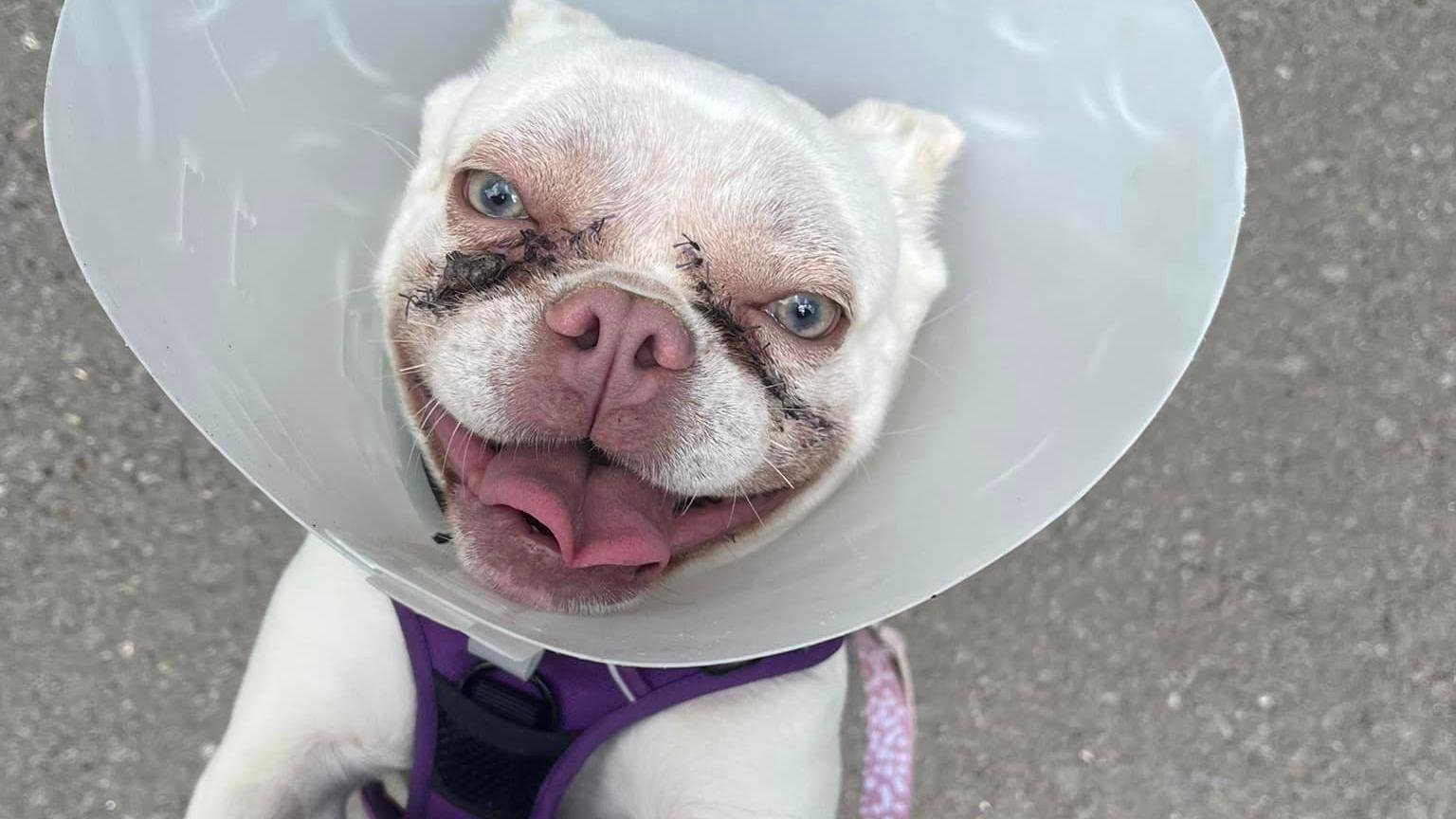
- Published11 August 2024
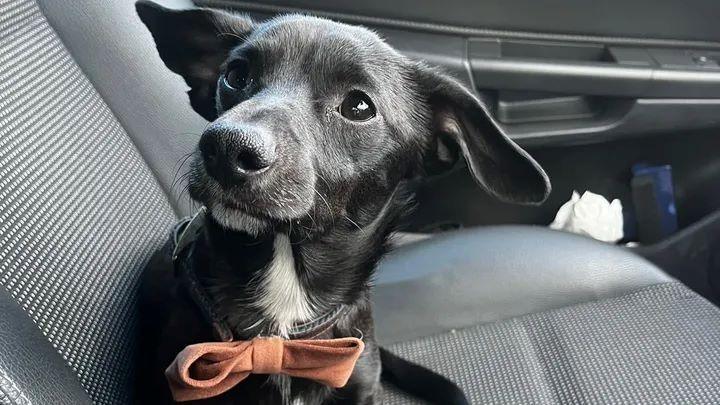
- Published7 September 2023
